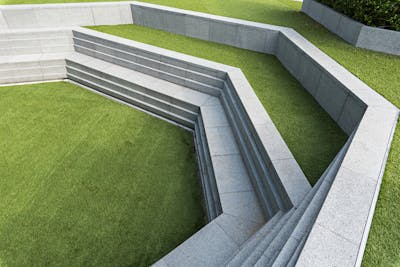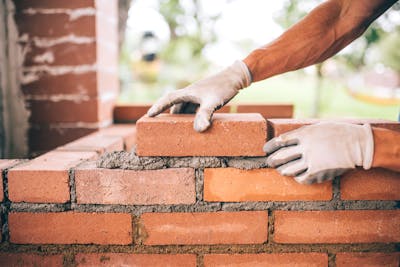Find the Best Bricklayers Near You
- Post a job
- Receive multiple quotes
- Choose your preferred Bricklaying contractors
Where do you need Brick Layer?
Describe your job and our suppliers will send you quotes
Bricklaying Professionals for Hire in Australia
Bricklaying is an in-demand trade in the construction industry, known for its craftsmanship and attention to detail. At iseekplant, we connect you with professional bricklayers across Australia. From residential projects to large commercial constructions, our skilled bricklayers have the expertise to handle various bricklaying tasks.
Bricklaying Rates Guide
Typically, bricklayers charge by the number of bricks laid or on a day rate. Depending on the complexity of the work, the average cost can range from $1.70 to $4.00 per brick. Day rates vary between $350 and $550.
Bricklaying Costs per 1,000 Bricks
| Service Type | Average Rate Per 1,000 Bricks | Average Day Rate |
|---|---|---|
| Residential Bricklaying | $1,700 - $3,800 | $350 - $550 |
| Commercial Bricklaying | $2,200 - $4,800 | $400 - $650 |
| Specialised Brickwork | $2,800 - $5,500 | $450 - $750 |
Note: All prices listed on this page are estimates, exclude GST and are in AUD. Price estimates can vary based on location and additional requirements.
Bricklaying Costs by Location
Bricklaying costs can heavily vary between certain locations, and this is associated with the demand and supply in the area, as well as varying costs of inputs like bricks and mortar. Here are some comparisons in bricklaying costs between Sydney, Perth and Melbourne:
| Location | Material | Updated Rate (AUD) |
|---|---|---|
| Sydney | Standard clay common bricks | $660 |
| Facing bricks clay (standard) | $960 | |
| Cement mortar per 1,000 bricks | $150 | |
| Perth | Standard clay common bricks | $825 |
| Facing bricks clay (standard) | $970 | |
| Cement mortar per 1,000 bricks | $90 | |
| Melbourne | Standard clay common bricks | $570 |
| Facing bricks clay (standard) | $710 | |
| Cement mortar per 1,000 bricks | $95 |
Bricklaying Costs by Job Type
The cost of hiring qualified bricklayers varies depending on the complexity and type of project. Whether it's using cement blocks for walls or building a brick fence, the rates depend on the level of skill and materials required. Here are the typical costs for different bricklaying jobs:
| Job Type | Updated Average Cost (AUD) |
|---|---|
| Garden Walls | $1,200 – $2,800 |
| Laying Foundations | $6,700 – $18,500 |
| Creating Openings for Doors/Windows | $920 – $1,850 per opening |
| Garage Building | $33,000 – $55,000 |
| Laying Patio | $1,650 – $4,700 |
| Building Fireplace | $375 – $1,100 |
| Building Steps | $470 – $1,400 |
| Removing a Wall | $560 – $3,200 |
Bricklaying projects often require bricklayers working with precision to achieve both aesthetic and functional results. For any complex projects, consult a qualified bricklayer to get accurate costs tailored to your requirements.
Additional Costs to Consider in Bricklaying Projects
These additional expenses can significantly impact the overall budget of your project:
| Additional Cost | Updated Standard Rate | Description |
|---|---|---|
| Scaffolding Hire | $60 - $120 per day | Essential for accessing high or hard-to-reach areas. |
| Mortar Mix Supply | $110 - $220 per cubic metre | Cost varies based on the type and quantity required. |
| Waste Removal | $250 - $450 per load | Includes the cost of disposing of excess materials. |
| Tool and Equipment Rental | $40 - $90 per day | For specialised tools not provided by the specialist. |
| Delivery Charges | $60 - $180 | Depends on distance and quantity of materials. |
| Project Management Fees | 12% - 18% of total cost | For overseeing and managing the entire project. |
To get a tailored quote that includes all potential fees and charges for different bricklaying works, use our Get a Quote tool. This tool connects you with our trusted suppliers, ensuring you receive an accurate and customised estimate for your bricklaying needs.
Heavy Equipment You Need in Bricklaying
In addition to hand tools, several heavy equipment and services play a vital role in bricklaying projects to ensure efficiency and quality:
| Equipment | Popular Model | Quick Specs | Application in Bricklaying | Wet Hire Rate | Dry Hire Rate |
|---|---|---|---|---|---|
| Mixers | Belle MiniMix 150 | 0.75 kW motor; 130L drum volume | Mortar mixing for cement blocks and brickwork | $120/day | $80/day |
| Scaffolding | Layher Allround | Modular system, max. height varies | Provides elevated access for bricklayers working on walls and fences | $220/day | $160/day |
| Compactors | Wacker Neuson DPU 3050H | 3 kW power; 50 kN centrifugal force | Preparing stable ground for brick fence and wall foundations | $140/day | $100/day |
| Concrete Pumps | Putzmeister BSF36.16H | 36 m reach; 160 m³/hr output | Delivering concrete for foundations and bricklaying structures | $950/day | $750/day |
Transform Your Australia Project with Expert Bricklaying Services
Get the best start for your bricklaying project with iseekplant! Our network connects you to skilled bricklayers delivering high standard work for structures, renovation, and new builds at a fair price. From residential to commercial projects, we ensure your needs are met with quality and reliability. Need equipment or materials? We’ve got everything from trenchers to backhoes to support your project.
For any questions or to receive tailored guidance, reach out to us at projects@iseekplant.com.au or call us at 1300 691 912. Ready to elevate your construction project? Click 'Get a Quote' and let's start building your success today!
Popular Brick Layer Locations
Related Categories
Become a supplier
How It Works
Bricklaying FAQs
Here are some frequently asked questions and tips on finding the right bricklayers for your job.
What do we have to offer?
Want to Know More?

Concrete Retaining Wall Cost Guide 2022- Get a quote | iseekplant
Retaining walls serve purposes of both practicality and aesthetics. You ...

Bricklaying cost guide 2025 | iseekplant
Bricklaying is a technique through which bricks are used to build struct...
